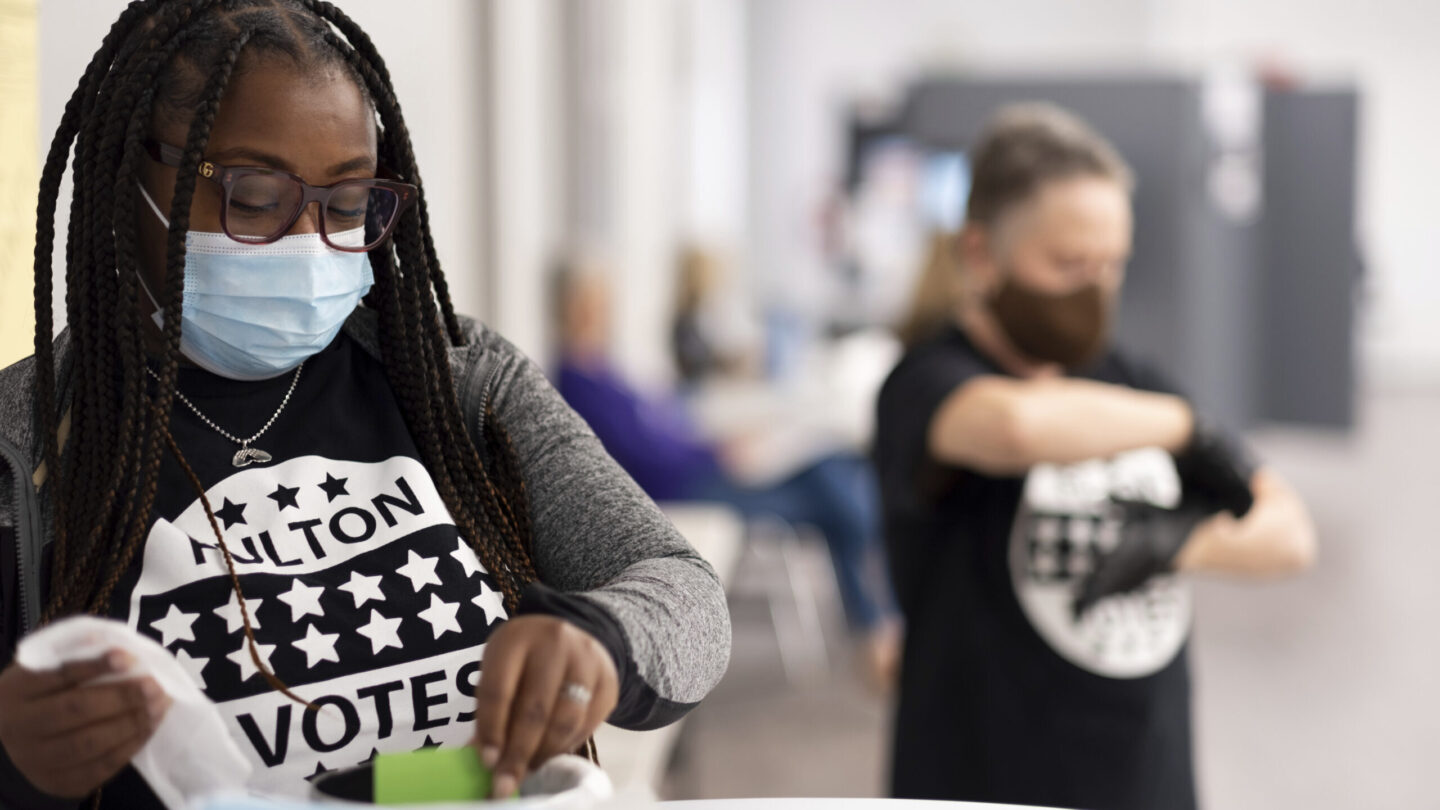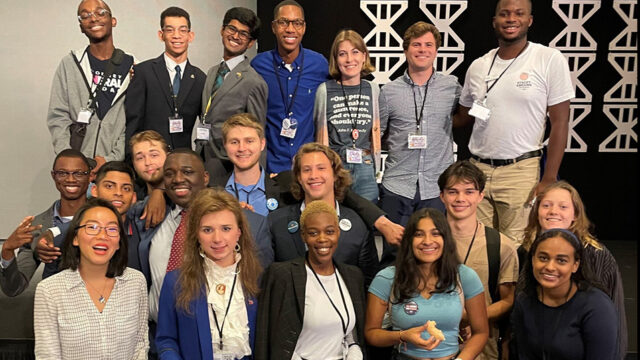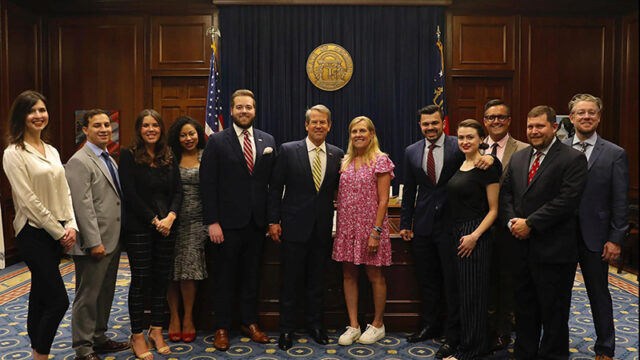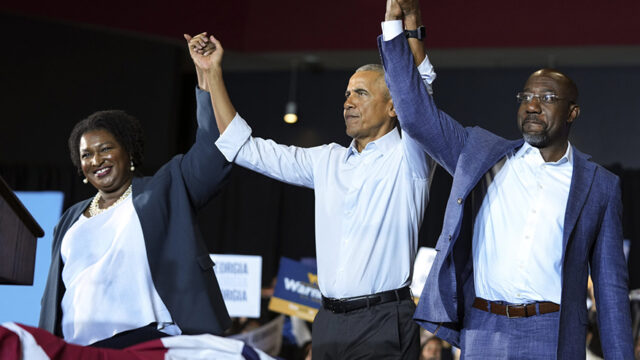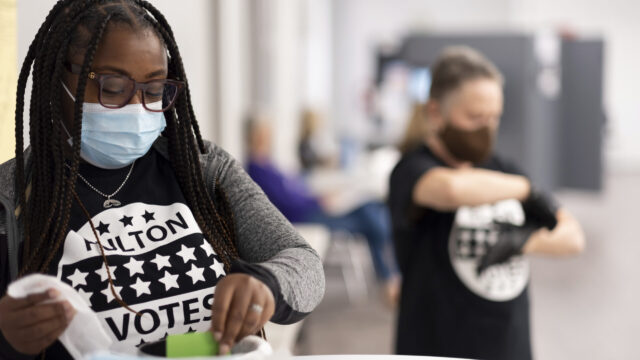One week after the 2022 midterm elections, many Georgians are still coming to terms with the successes, and failures, of the candidates that they supported through a historic and highly publicized political season.
With the exception of the race for Senate between incumbent Sen. Raphael Warnock and Republican candidate Herschel Walker, which has resulted in a runoff election scheduled for Dec. 6, election results saw victories for all states offices, including Gov. Brian Kemp’s defeat over Democratic candidate Stacey Abrams for a second time.
The biggest surprise for many voters, however, was the unexpected boost in representation seen among Gen Z voters both statewide and nationwide compared to the previous 2018 midterm election.
The Center for Information and Research on Civic Learning and Engagement (CIRCLE) notes that Gen Z brought forth over 8 million new voters nationwide to the polls, with the turnout of voters 18 to 29 the second largest within the past three decades.
“Youth turnout this midterm election was high around the nation at 27%, only bested by the 31% we saw in 2018,” said James Wenz, outreach coordinator for the nonprofit organization, Civics Center. “Young people exceeded expectations for turnout across the board.”
“People are starting to see just how important midterm elections are; that there are other offices on the ballot that have much more on an impact on their day-to-day lives than the President does,” said Niles Francis, an Atlanta-based 21-year-old political journalist.
Despite the higher-than-expected turnout, Clark Atlanta University professor Tammy Greer argues that the overall percentage rate of Gen Z voters still remained exceedingly low compared to their counterparts.
Although the state saw a turnout of 2,538,241 ballots for early and absentee voting, only 227,511 of the votes came from voters within the age range of 18 to 29. This is roughly 9% of the state’s early voting population and, while the final percentage of young voters on election day is unknown, it would need to be at 18% or higher to match the national average, as confirmed by the Secretary of State’s Office.
“(Young voters) think, ‘what does my vote matter when there are millions of other votes already’, when in reality, their vote is equivalent to those millions of votes. Their vote can actually make the difference.”
Skyler Hill, President, National Association of Black Journalists, Georgia State University chapter
“There continues to be an eligible amount of Gen Z voters; however, from a proportional standpoint, the older generation, which are closer to Baby Boomers and the Silent Generation, are continuing to outvote Gen Z,” said Greer.
“There is a lack of civics education among young voters. As Generation Z comes of age as full citizens, we begin to see in the percentage numbers that these young people were not given the foundation and training to participate in their local government.”
According to a recent report, over 60% of national voters within the age range of 18 to 29 voted for Democratic candidates.
This raises the question as to how many Gen Z voters in Georgia help to contribute to the reelection of Republican incumbents such as Kemp, Secretary of State Brad Rassfenperger, and State Superintendent Richard Woods.
“Democrats tried to paint them as extremists, but to many moderates and Republican-leaning independents, they did their jobs,” said Francis. “They didn’t really give young voters a reason to get rid of them.”
However, some Georgians believe that the results of the midterm were not representative of Gen Z’s policies and political leanings, but rather the lack of urgency Democratic young voters felt to arrive at the polls.
“I think a lot of times young voters, especially those living in the metro Atlanta area, get stuck in this mindset that everyone in the state is a Democrat because everyone around them is a Democrat,” said Skyler Hill, journalist and National Association of Black Journalists President for Georgia State University’s chapter. “They think, ‘what does my vote matter when there are millions of other votes already,’ when in reality, their vote is equivalent to those millions of votes. Their vote can actually make the difference.”
Greer believes that many young voters have become a part of a new wave coined as “thumb activism,” in which young people are active in promoting or discussing political candidates on social media, but are oftentimes absent themselves when it comes to filling out a ballot.
In addition, Greer notes that candidates’ fixation of reaching out to young voters through social media and entertainment-based events may have done more harm than good, despite popular belief.
” They’ve taught them that being entertained is a part of the political process. And we should really reconsider equating governing people’s lives, their pocketbook, their environment… to entertainment value in the case of voting and civic participation.”
“People are starting to see just how important midterm elections are; that there are other offices on the ballot that have much more on an impact on their day to day lives than the President does.”
Niles Francis, Political Reporter – “Peach State Politics”
This could be considered as a factor in the loss of Abrams, who dedicated much of her campaign to reaching out to young voters through social media and campaign events.
But while Abrams and her supporters did not experience the results they estimated statewide in the polls, the metro Atlanta area, a region of high LGBTQ and racial diversity, was shown to be overwhelmingly in support of Democratic candidates, diverse groups made up of many Gen Z voters that Abrams also campaigned heavily for.
“As far as reaching out to younger voters and voters of color, I think that she did an amazing job…. she campaigned at several college campuses, held events geared towards African American men,” said Francis. “Unfortunately, it was just a bad year for her. It was a bad year for Democrats in Georgia overall.”
Greer believes, however, that with a strategy to cultivate a culture of civic participation and civic education among young people, Georgia “Z” voters will allow the representation of Democratic candidates and policies to reign higher than ever before in future elections.
“I see Georgia from the top of the ticket to all of the statewide races, and even some races in the Georgia General Assembly, flipping. And if they flip, we will see a rolling back or enhancement of some of the policies that matter to most young people…they can change the course of history in Georgia.”
As for the future of the Georgia Senate seat next month, there is uncertainty about whether or not a high amount of Gen Z voters will participate in the runoff election on Dec. 6.
“It’s hard to say for sure how young people will show up for the runoff, but with so much national attention turning to the race, I’m sure there will be lots of money poured into turning out youth voters,” said Wenz.
In the Nov 8. election, young people contributed roughly 116,00 net votes to Sen. Warnock, with a 63% favor among Gen Z voters to compared to Walker’s 36%. However, the lack of early voting days, as well as the feeling of “political burnout,” may have an effect on young citizens’ willingness to sacrifice time and effort to make it back out to the polls.
“I think that the younger generation will definitely pop out again, but I think, in general, it is just harder to get young people to do anything,” said Hill. “The older people who are going to vote for Herschel are going to be out there at the polls, for sure. They understand the right to vote and what comes with it.”
